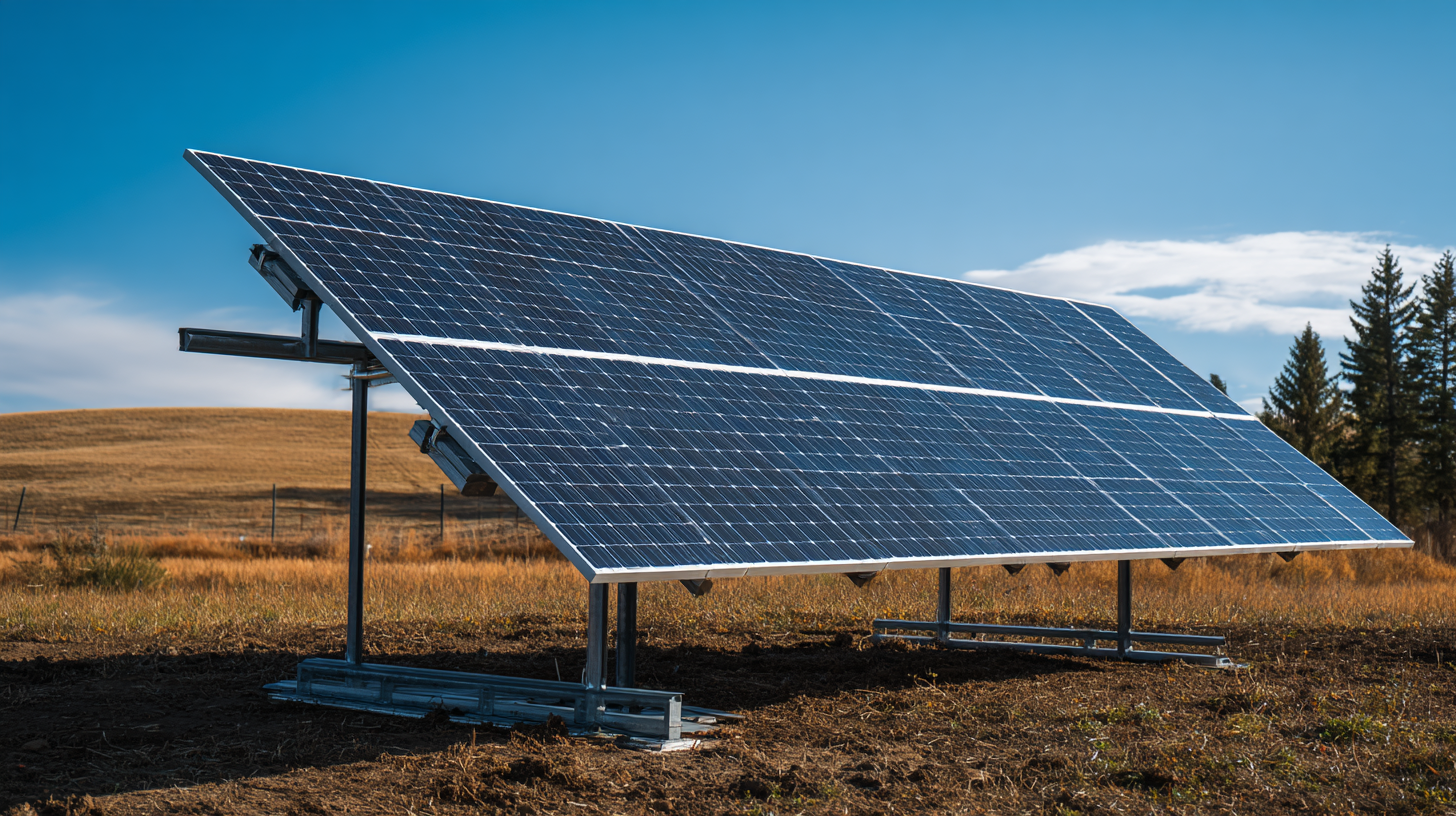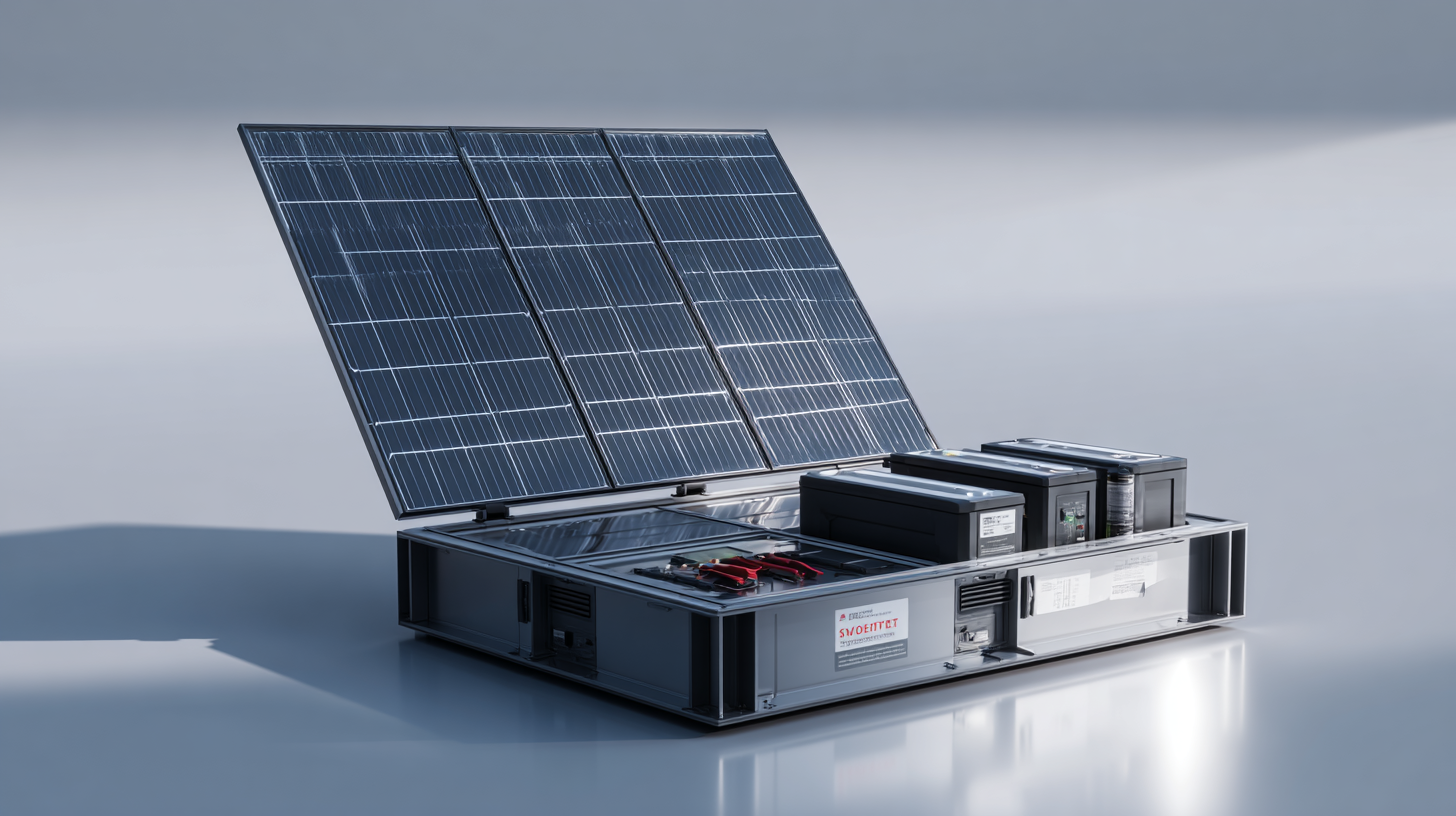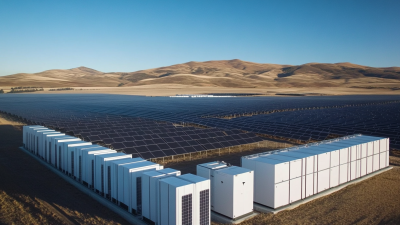As the urgency for sustainable energy solutions escalates, homeowners and businesses alike are increasingly turning to solar power as a reliable alternative. However, the efficiency and effectiveness of solar systems largely depend on the quality of the energy storage solutions employed.
Recent industry reports indicate that selecting the right battery for solar systems can enhance energy storage capacity by as much as 40%, a substantial improvement that can translate into significant cost savings and energy independence.
The International Energy Agency (IEA) has outlined that improper energy storage can lead to losses of over 30% in generated solar energy, emphasizing the critical role of advanced battery technologies. Among the various types of batteries available, lithium-ion batteries have emerged as a front-runner due to their lightweight, high energy density, and longer lifespan.

Solar energy storage plays a crucial role in the effective use of renewable energy. As solar energy generation is often intermittent, storing excess energy for later use is essential for maintaining a consistent power supply. This storage capability not only enhances energy independence but also optimizes energy usage during peak demand times, reducing reliance on the grid. By understanding the dynamics of solar energy storage, users can make informed decisions that maximize their energy efficiency and reduce overall costs.

The choice of battery technology is pivotal in enhancing solar energy storage performance. High-quality batteries can significantly increase the efficiency of solar systems, enabling users to store upwards of 40% more energy. Innovations in battery design and materials have led to advancements that allow for greater capacity, faster charging, and longer life cycles. By investing in the right type of battery, solar system owners can significantly improve their energy management, ensuring that they harness the full potential of the solar energy generated.
When it comes to optimizing solar energy systems, selecting the right battery is key. There are several types of batteries commonly used in solar installations, each with its own pros and cons.
Lead-acid batteries, for instance, are widely available and cost-effective but have a shorter lifespan and lower depth of discharge compared to
lithium-ion batteries. On the other hand, lithium-ion batteries offer higher efficiency, longer life cycles, and can store more energy, leading to better performance for solar systems in the long run. However, they also come with a higher initial cost.
Another option is saltwater batteries, which are environmentally friendly and relatively safe. While they are less common, they can provide a sustainable alternative for those looking to minimize their carbon footprint. It’s essential to weigh these options carefully based on budget, intended use, and energy needs.
Tips: When choosing a solar battery, consider your average energy consumption and expected usage. It’s also beneficial to consult with a solar energy professional who can assess your specific needs and recommend the most suitable battery type. Additionally, keep an eye on the warranty and lifespan of the battery, as these factors can significantly affect long-term value.

The efficiency of batteries in solar power systems plays a critical role in the overall performance and reliability of renewable energy. A well-chosen battery can potentially enhance energy storage capabilities by up to 40%, allowing users to maximize the benefits of solar energy. Recent advancements in smart technology have further propelled this efficiency, integrating innovative solutions that optimize energy generation and storage. For instance, the development of self-healing solar materials and advanced nanotechnology has shown substantial promise in boosting solar cell efficiency. These breakthroughs not only enhance the performance of solar panels but also improve the capacity of batteries, underscoring the link between solar panel efficiency and battery performance.
Moreover, research indicates that specific conditions, like increased temperatures, can enhance energy storage in next-generation solar technologies. This surprising relationship suggests that as we innovate in solar panel design, we may also unlock greater potential in battery efficiency. Innovations such as effective recycling methods for materials like glass are also playing a role in enhancing battery performance. As the solar battery market evolves, it becomes increasingly evident that the synergy between solar technology and energy storage solutions is crucial for achieving higher efficiency and reliability in renewable energy systems.
| Battery Type | Energy Density (Wh/kg) | Charge Cycle Life | Efficiency (%) | Max Depth of Discharge (%) |
|---|---|---|---|---|
| Lithium-ion | 150 | 2000 | 95 | 80 |
| Lead Acid | 30 | 600 | 80 | 50 |
| Lithium Iron Phosphate (LiFePO4) | 120 | 3000 | 90 | 90 |
| Nickel Manganese Cobalt (NMC) | 200 | 2500 | 92 | 85 |
When selecting a battery for solar systems, it's essential to focus on key features that can significantly enhance energy storage efficiency. An optimal battery should have high energy density, which allows for greater energy storage capacity without the need for larger, bulkier units. According to industry reports, batteries with energy density ratings upwards of 200 Wh/kg can increase the total energy output of solar systems by as much as 40%, ensuring that more energy can be stored and used during peak demand times.
Another critical feature to consider is the battery's cycle life, which refers to the number of complete charge and discharge cycles a battery can undergo before its capacity starts to diminish. A battery with a cycle life of over 4,000 cycles offers longevity that translates into better long-term investment and reduced frequency of replacements. Additionally, look for batteries that provide fast charging capabilities and exceptional thermal management to improve both efficiency and safety. With the rapid advancements in battery technology, choosing the right battery can play a pivotal role in maximizing the efficiency of solar energy systems.
This chart illustrates the energy storage capacity percentage increase when using different types of batteries in solar systems. The data indicates potential boosts in efficiency, demonstrating how choosing the right battery can significantly enhance energy storage capabilities.
Innovative technologies have been at the forefront of enhancing battery efficiency in solar systems, significantly improving energy storage capacities. One key advancement is the development of lithium-sulfur and solid-state batteries, which offer higher energy density compared to traditional lithium-ion batteries. These new battery types can store more energy in the same space, allowing for a more compact design that can better integrate with solar systems. By maximizing energy storage, homeowners and businesses can rely more on their solar energy, reducing dependency on grid power and saving on electricity costs.
Another promising approach involves smart battery management systems (BMS) that optimize charging and discharging cycles. These systems use artificial intelligence to predict energy needs based on consumption patterns and weather predictions, ensuring efficient use of stored energy. Furthermore, innovations in recycling and repurposing old battery materials not only reduce waste but also contribute to sustainability, making solar energy systems more economical and environmentally friendly. By adopting these innovative technologies, energy storage solutions in solar systems can potentially increase their efficiency by up to 40%, transforming the landscape of renewable energy.





